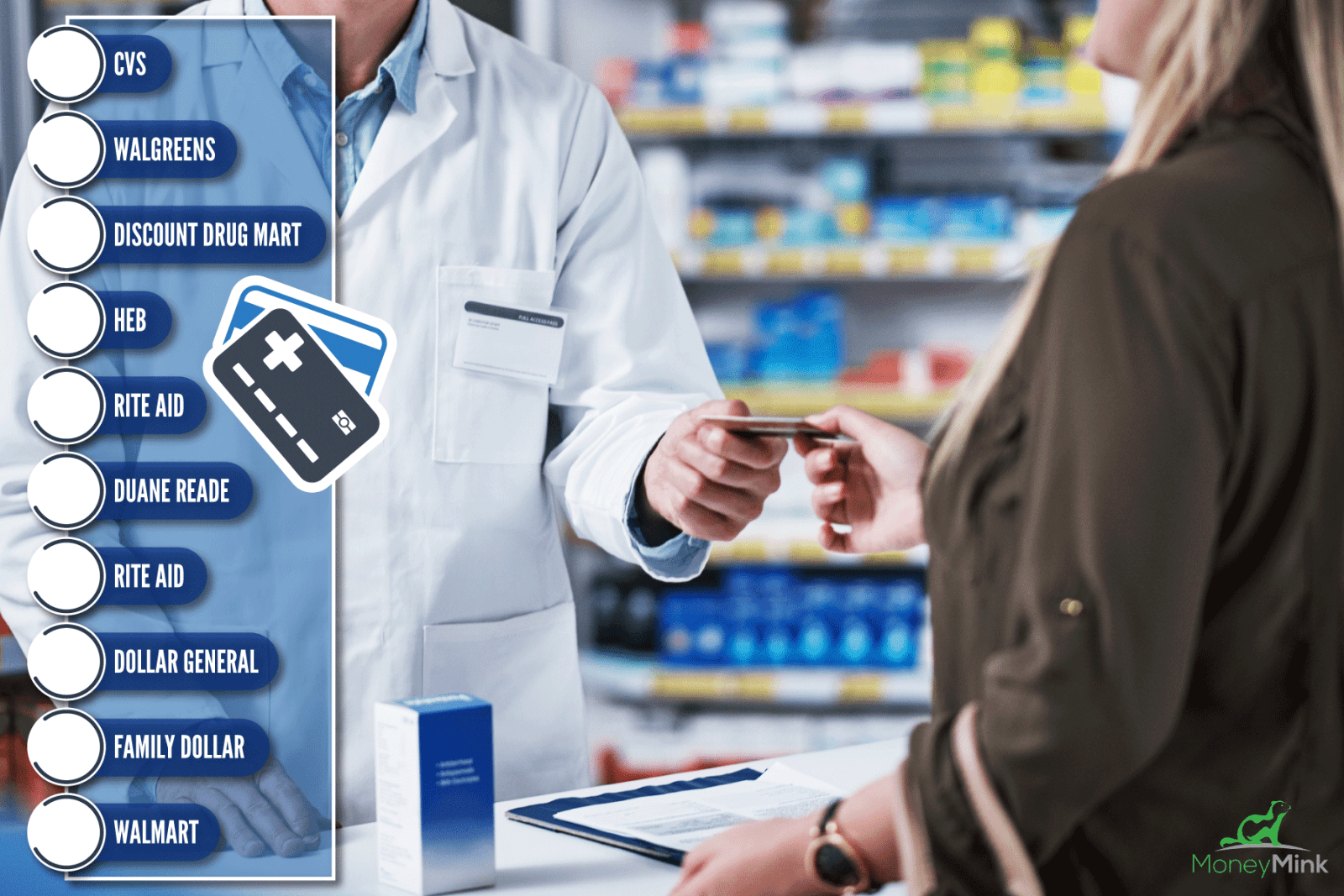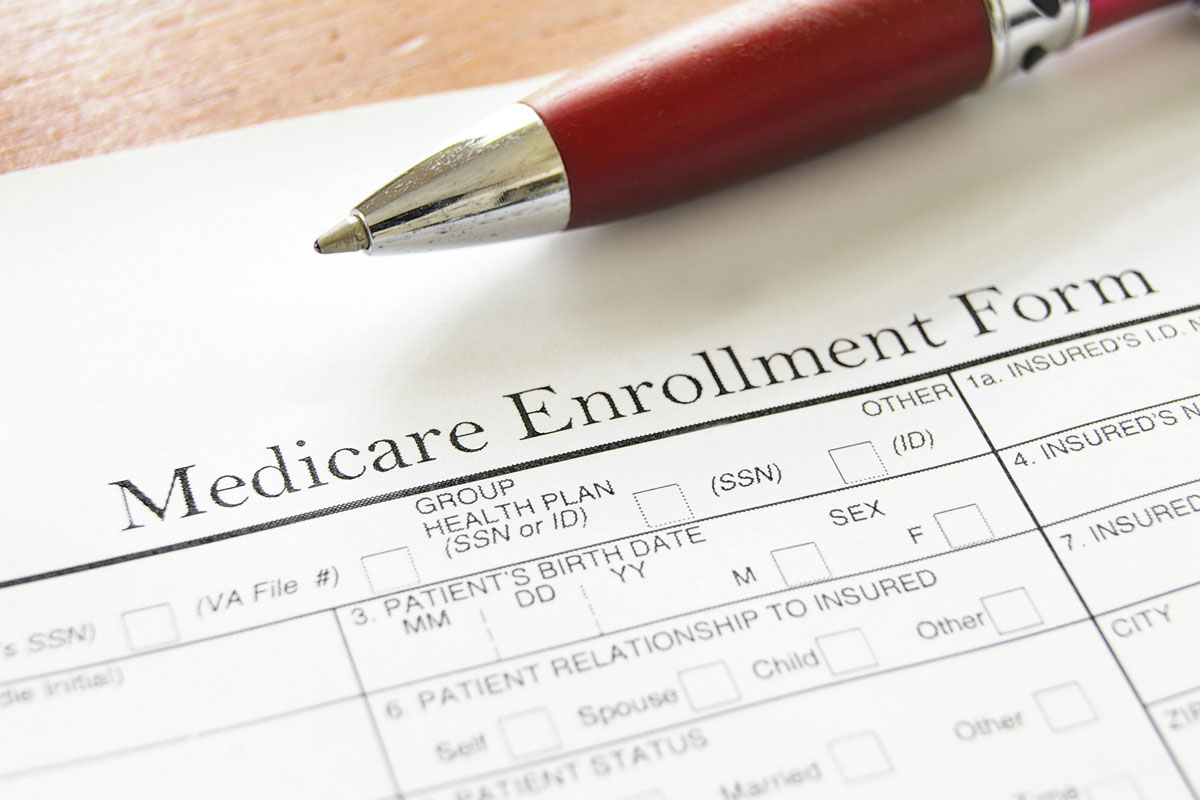OTC cards can help you get your medication for less. But what stores accept OTC cards? Let's take a look at some of the most popular stores that accept OTC cards.
Depending on your provider, your OTC card may be accepted at a variety of independent pharmacies and stores. Nonetheless, the most common stores that accept OTC cards are:
- CVS
- Walgreens
- Discount Drug Mart
- HEB
- Rite Aid
- Duane Reade
- Dollar General
- Family Dollar
- Walmart
Knowing where you can use your OTC card is important so you can take advantage of the savings. In this article, we will discuss how an OTC card works and the stores that accept them. In addition, we will answer other frequently asked questions about OTC cards, so read on!

Where Can I Use My OTC Card?
Many health insurance providers offer OTC cards, or over-the-counter cards, as a way to help their members save money on medications that are not covered under their health insurance plan.
Typically, your Medicare provider gives a certain amount of money on an OTC card to be used per quarter or per year. From there, you can use the OTC card to buy medications and other wellness products at a participating store.
For example, if your quarterly OTC allowance is $100, every time you make a purchase using your OTC card, the amount will be deducted from that $100 until it is used up. Once a quarter or when the calendar year is over, the funds will replenish, and you will have a new OTC allowance.
The tough part is finding participating stores that accept OTC cards. Nonetheless, there are several independent pharmacies and stores that accept OTC cards from a variety of providers.
There are also big retail chains that accept OTC cards, such as:
- CVS
- Walgreens
- Discount Drug Mart
- HEB
- Rite Aid
- Duane Reade
- Dollar General
- Family Dollar
- Walmart
It's important to double-check with your provider to see which stores are in their network. You can usually find this information on your provider's website or by calling customer service.
Once you know what stores accept your OTC card, you will also see what items are eligible. Not all items in the store may be covered, so it's important to check with your provider before making a purchase.
It's important to know that each provider is different, so be sure to research your specific provider to see what exactly is covered under your OTC allowance.
![]()
Can I Buy Groceries With An OTC Card?
Depending on your provider, you can buy groceries with an OTC card. This usually includes the necessities such as vegetables, fruit, eggs, milk, and bread.
Your healthcare provider will also have a list of eligible food items. Typically these are considered healthy foods; it wouldn't make sense if your OTC card could be used to buy unhealthy junk food.
If you're unsure about whether a particular food item is covered, be sure to check with your healthcare provider before making a purchase.
Can I Use My OTC Card To Buy Shampoo?
For some OTC card providers, general health items such as shampoo are not typically covered under an OTC card. This will also include toothpaste, body wash, deodorant, and other hygiene products.
However, if you have a specific medical condition that requires a certain type of shampoo, it's possible that your healthcare provider will cover the cost. For example, if you have scalp psoriasis, your healthcare provider may cover the cost of medicated shampoo.
In some cases, you won't receive OTC card reimbursement if you use it to purchase general health and hygiene products.
Nonetheless, this isn't true for every OTC card provider, so it's important to check with your specific healthcare provider to see what is and isn't covered.
How Do I Use My OTC Card?
When you're ready to make a purchase, simply present your OTC card and eligible items list to the participating store. The cashier will swipe or scan your card, and the purchase will be deducted from your OTC allowance.
It's important to keep track of your balance so you don't overspend. You can usually find your balance by logging into your account on your healthcare provider's website.
Some providers also offer mobile apps that make it easy to check your balance and see what stores are in the network. This can be a handy tool if you're on the go and need to find a participating store quickly.

Can I Carry Over My OTC Card Remaining Balance?
Typically, you can't carry over your OTC card balance. This means that if you don't use all of your quarterly allowances, the remaining funds will be forfeited.
If this is the case, take advantage of your balance and use it before the end of the quarter. You can use it to purchase items that you may need in the future, such as cold medicine.
Don't take a loss on your OTC card balance. Use it or lose it!
Can I Convert My OTC Card To Cash?
No, you cannot convert your OTC card to cash. The funds can only be used to purchase eligible items at participating stores.
If you want a card that you can use for cash withdrawal, consider a prepaid debit card. These cards can be used anywhere that accepts debit cards, and you can withdraw cash from an ATM.
The main benefit of a prepaid card is it lowers the risk of overspending. What you put onto the card is all you can spend.
For example, you could use your OTC card for your prescriptions, wellness products, and select groceries items. You could then budget an amount for your prepaid card for gas, entertainment, and other discretionary expenses.
Do I Have To Apply For An OTC Card?
In order to get an OTC card, you will need to enroll in a health insurance plan that offers the benefit. Not all plans offer an OTC card, so be sure to check with your healthcare provider before enrolling.
If your plan doesn't offer an OTC card, you may be able to get one through your job. Many employers offer OTC cards as part of their benefits package.
If you're not eligible for an OTC card through your health insurance or job, there are other ways to get one. You can purchase a standalone OTC card, or you can use a flexible spending account (FSA).
An FSA is a type of savings account that lets you set aside pre-tax money to use for eligible healthcare expenses. This includes OTC items as well as dental and vision care.
If you're interested in getting an OTC card, talk to your healthcare provider or employer about your options.

Is There An Age Requirement To Get An OTC Card?
Since OTC cards are typically given to Medicare subscribers, there is an age requirement. In order to enroll in Medicare, you must be 65 years or older.
However, for disabled and dialysis patients, there is no age requirement. If you qualify for Medicare due to a disability or chronic kidney disease, you can get an OTC card.
Can You Use An OTC Card For Utilities?
As mentioned earlier, depending on your provider and your OTC card, you may be able to use your card to purchase other eligible items.
For example, some Medicare providers in certain states have OTC cards that can be used to pay for utilities, such as electricity, water, internet, and gas.
In addition, these premium OTC cards can sometimes be used for fitness equipment. Since this is for your wellness, it may be seen as a healthcare expense.
Are All Prescriptions Eligible With An OTC Card?
Some prescription drugs are not eligible for coverage with an OTC card. For example, drugs that are not FDA approved or those that are considered experimental are not covered.
In addition, drugs administered by providers at a facility, such as a hospital or nursing home, are not covered. These include, but are not limited to:
- Injections
- IV infusions
- Chemotherapy
- Radiation therapy
If you're not sure if your prescription is eligible, check with your healthcare provider or the OTC card issuer.
Final Thoughts

Overall, an OTC card can benefit those with financial support for health and wellness products. It's vital to know the ins and outs of the card, such as what is and isn't eligible for coverage. Always double-check with your provider or the issuer to avoid any misunderstanding.
Made it to the end? Here are other articles you might find helpful:
Can You Transfer Money From Emerald Card To Bank Account?



